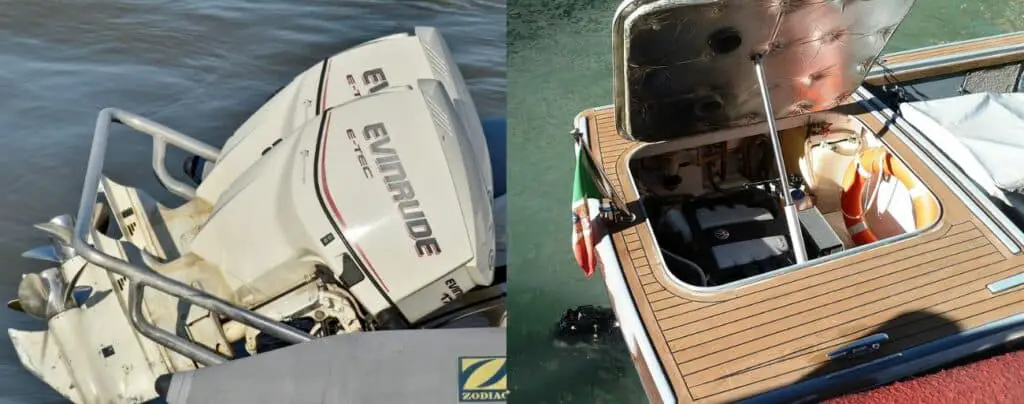When it comes to experiencing life on the water, there are a few things that come to mind when it comes to your boat. Safety, comfort, and reliability are among the highest priorities when researching this new investment. Making the wrong choice can be costly and result in having an expensive toy that is neither useful nor enjoyable to you.
In short, yes. Boats are extremely reliable vessels intended for both recreational and occupational usage. As long as you do the proper maintenance, especially for boats used in saltwater, expect them to last 15+ years and well over 1,000 engine hours.
Whether you are seeking a boat that is great for fishing, cruising, or occupational purposes, you want something that you know is going to last and offer you the greatest value for your dollar. You want something that will get you from point A to point B and back many times over. You want a boat that is reliable.
Average Lifespan of a Boat
When considering the reliability of a boat, one of the most important factors you must prioritize just after safety and over comfort is its lifespan. When you are investing in something of this caliber, you want to make sure that it lasts as long as possible.
There are three main areas to consider when determining the lifespan of your boat: Engine, Hull, and Usage. Let’s take a closer look at each.
Engine: The two engine types you will expect to see when researching your next boat purchase will be the inboard engine and the outboard engine. These engine types vary in many ways, including the average lifespan.

- Inboard (gasoline): Without getting too much into the different types of drives, right off the bat, inboard engines are known to last longer than outboard engines by an average of 500 hours. Generally speaking, with moderate maintenance and care, your inboard engine can last between 1500 to 2000 hours with a regular gasoline engine. With inboard motors having less exposure to the elements, it gives them more protection and allows them to go 33 percent longer than your outboard engine. The downside to an inboard motor, as opposed to an outboard, typically falls under the area of size and weight. An outboard is considerably larger and heavier than an outboard.
- Outboard (gasoline): Due to its exposure to the elements, your outboard engine has a significantly short lifespan than the inboard engine. With moderate maintenance and care, your inboard engine should last rough 1500 hours without needing a major overhaul. While this lifespan deviation can be a practical difference of several years, making the outboard engine seem like a less desirable choice, the size and weight needs are what make the outboard motor a viable choice. With the outboard motor giving you more versatility in weight and size, it allows for outings in smaller and more narrow environments. The choice here more so comes down to intended use.
- Diesel: While inboard and outboard engines last roughly 1500-2000 hours with your typical gasoline engine, opting for a diesel option changes the game immensely. The inboard engine lifespan increases to about 5000 hours while the outboard increases to roughly 3000 hours. With regular maintenance and love, it is not uncommon for both diesel engine types to exceed 8000 hours.
Hull: After considering the engine type that you want on your boat, the next major contributor to boat lifespan is the hull. Fiberglass, aluminum, steel, and wood hulls are what you will generally see used on a boat and have these varying lifespans:

- Aluminum: An aluminum boat does not rust and is typically very malleable when it comes to dents and scratches. Although it can corrode over time, you will likely see at least 30 to 40 years of moderate usability with little to no maintenance required.
- Fiberglass: A fiberglass hull, requires a little more maintenance to ensure longevity than an aluminum hull. Scratches and possible holes need to be addressed as soon as possible to avoid moisture making its way in, and compromising the integrity of the materials. With moderate care and love, you should expect a fiberglass hull to last 50+ years. Note: Without any maintenance, you can expect this style hull to last less than 10 years.
- Wood: A wood-style hull lifespan varies immensely depending on regular maintenance and usage. Because wood is prone to rotting, you will need to seal and paint it often to keep moisture from compromising the materials. With no maintenance, your wood boat will be extremely unreliable and last less than 5 years before needing to be replaced. Those that take more should see their wood boat easily last multiple decades.
- Steel: Now, your average steel boat will last roughly 40 to 70 years with regular care and maintenance. It is not uncommon to see these beasts lasting well over 100 years when properly loved and maintained. While just the opposite happens when maintenance is ignored. Without maintenance, steel vessels rarely outlive 25 years.
Related article: How Long Do Boats Last? (Material, Brand, and Motor)
Some other lifespan factors to consider are:
Fresh Water Vs Salt Water: Salt water tends to corrode materials quicker than fresh water. If you plan to use your vessel for ocean traveling, expect more maintenance. This may include desalting the engine and hull after every use, scrubbing barnacles off the hull, and more.
Long Vs Short Trips: Idling your engine for long periods of time or constantly starting and stopping the engine will reduce its lifespan. Longer trips ensure the best lifespan for your engine.
Low Vs Regular Maintenance: While this should be a given, making sure that you perform regular maintenance on your vessel will ensure a much longer life than if you didn’t offer any love at all.
Considering the engine, hull, usage, and maintenance is the best way to ensure that your boar remains reliable for you.
How to Make Your Boat More Reliable?
Getting the most bang for your buck doesn’t end when at the initial purchase. Ensuring that your boat remains reliable for years to come requires your love and care throughout the year, and before and after each time it is used. These 4 things will help ensure that your boat remains reliable
- Maintenance: Make sure that you are completing all the maintenance required for your vessel. As mentioned before, a poorly maintained vessel will require replacement in as little as 3-10 years. That is a tragedy considering the well-maintained vessel can easily live 25 to 100 years. Click here to learn more about needed maintenance for your boat.
- Use: While the purpose of your purchase wont generally change, your vessel intended for recreational use in freshwater will likely last significantly longer than your vessel intended for occupational use in salt water. The engines still should last around the same number of hours, but the longevity in regard to years will drastically vary.
- Caution: You can expect your boat to last significantly longer if you take caution while operating it. This includes acceleration, maneuvering, and how reckless you choose to be near underwater obstructions such as rocks, growth, or shallow areas. If you don’t treat it right, don’t expect it to last long.
- Resources: Your boat care will likely expand outside your ability. Take advantage of literature and boat repair shops so that the professionals can ensure your boat lasts longer than they would otherwise. You are not alone in your boat care responsibilities.
A well-maintained boat that is cautiously used for recreational purposes and taken care of by professionals will last many years.
How Reliable are Boats Compared to Snowmobiles, ATVs, and Cars?
As compared to other recreational or occupational vehicles, a boat is either just as reliable or more reliable. When compared to Snowmobiles, ATVs, and Cars, the reliability goes as followed:
ATV: An ATV can last upwards of 20 plus years with moderate usage. When it comes to actual usage and running time, you can expect an ATV to run for around 1000 hours with regular maintenance. At that point, your ATV will likely need extensive repairs and maintenance.
With the ATV lifespan hovering at around 1000 hours, the reliability of a boat far exceeds it. If you like the water and want something that will give your more fun for longer, a boat is the way to go.
Snowmobile: Generally speaking, a snowmobile is used for more practical purposes when living in a colder climate. This means you would want something that is the most reliable option as compared to other snowmobiles. That being said, a snowmobile will typically last the user anywhere from 10 to 15 years, with longevity of about 10,000 to 15,000 miles. A snowmobile over 8,000 is considered high mileage.
When compared to a boat for either recreational use or occupational use, the lifespan hardly compares. Your boat should go further and last longer than the average snowmobile with regular maintenance and optimal conditions.
Car: It is not uncommon to see a vehicle on the road for more than 20 years, but with the way vehicles are made now, the average lifespan is only around 12 years with around 150,000 to 300,000 miles. However, with adequate maintenance and care, you could get much more.
For practical purposes, a vehicle is much more reliable than a boat. No contest. It will go farther and will last longer for its use than a water vessel. If the vehicle is made for recreational use, it will likely have a shorter lifespan, but when driven responsibly, it will be much more reliable than a boat.
So, boats are more reliable than ATVs and snowmobiles, but not as reliable as most cars.
Conclusion
Boats are very reliable vehicles as long as you take proper care of them. If you are looking for something to enhance your family vacations and ensure valuable bonding time, a boat is the right choice for you and your family.
Whatever your purpose, finding a reliable vessel is a must. If you buy used, make sure the vessel is inspected. Otherwise, renting is also a great way to test drive and get a feel for your new investment. This on-the-water vehicle is something you will enjoy for years to come. Don’t put it offer another season.
- What Is The Cheapest Way To Store A Boat? - February 28, 2023
- Do Boats Need Bottom Paint? (Uncovering the Truth) - February 2, 2023
- How Much Is Bass Boat Insurance? (Real Quotes) - January 18, 2023

